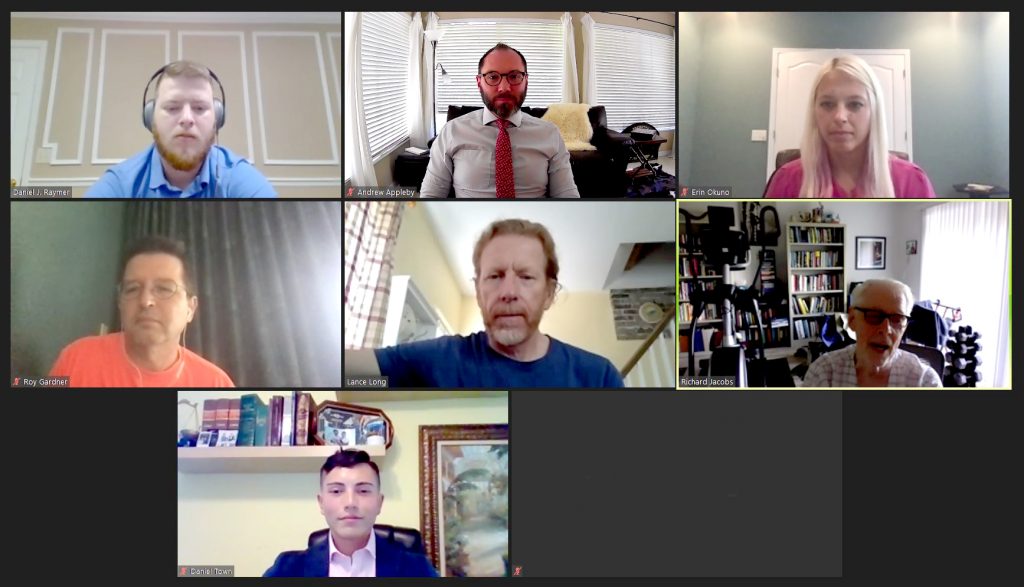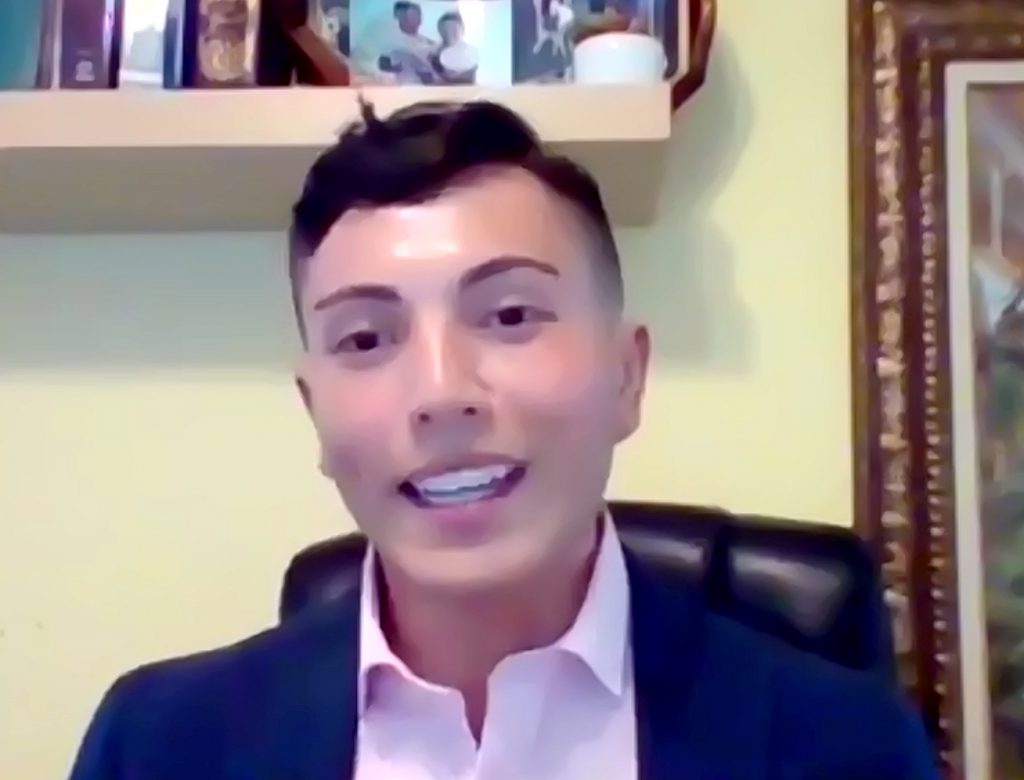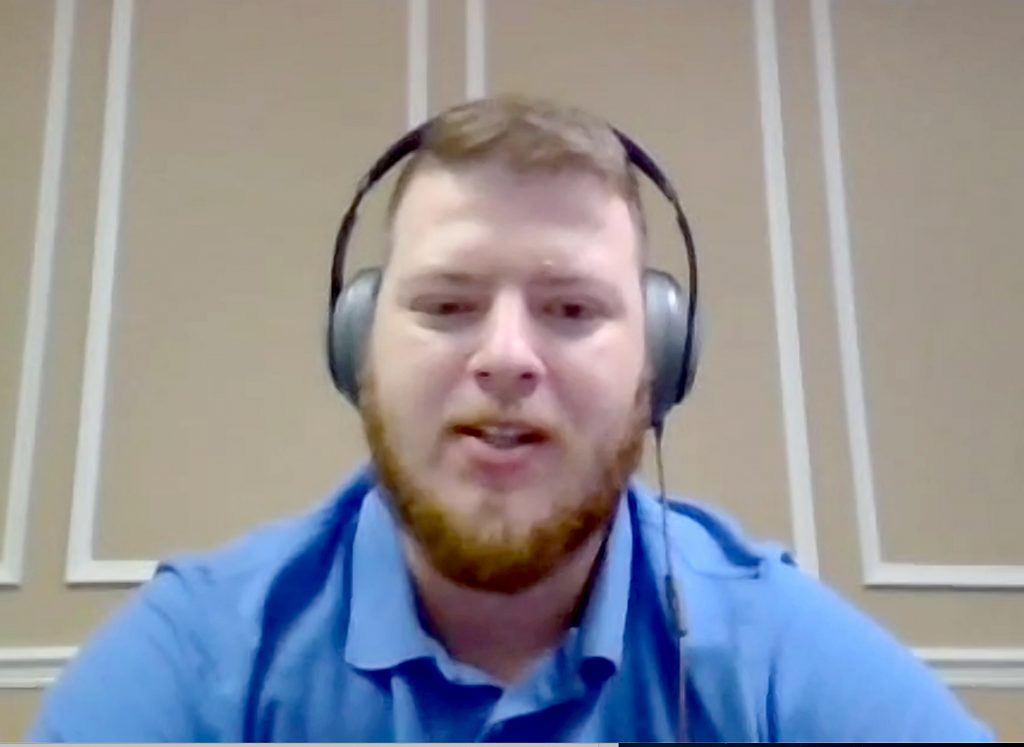New competition generates tax solutions to address climate change

GULFPORT, Fla. (July 28, 2020) – Stetson University College of Law launched a new competition to galvanize students to develop innovative tax law policies that could fund solutions for sea level rise.
Though tax policy might not be the first discipline to come to mind in which to seek tools to combat climate change, attorney and author Richard O. “Dick” Jacobs felt confident Stetson students, if given the challenge, could mine it to great effect. Rising sea levels are a pressing issue for Florida’s future, and Jacobs thought funding a competition would jump start a conversation by focusing on tax policy solutions to help address the problem.
And so The Stetson Environmental Tax Policy Writing Competition: Tax Policy Solutions to Address Sea Level Rise was born. Students submitted their ideas in late spring, and a committee of tax and environmental lawyers judged the competition using the following criteria: (1) breadth and depth of analysis and sources, (2) creativity and originality, (3) objectivity and legal accuracy, (4) effectiveness of writing style, (5) practicality for addressing the issue, and (6) compliance with the contest rules.
Submissions could include proposed changes to the Florida Constitution and to Florida tax and regulatory law. The first and second place winners split a $1,000 cash prize. The winners of the inaugural competition were Daniel F. Town (first place) and Daniel Raymer (second place).
First Place: Daniel F. Town

Town, a May 2020 graduate, was born in Bogota, Colombia, and moved to Tampa Bay with his parents and brother at the age of six. He attended the University of South Florida, St. Petersburg, where he received his B.A. in Psychology. He is a first-generation college graduate and plans to work in the realm of tax and business law after taking the Bar Exam this summer.
Town said he has always considered himself an environmentalist, and the competition allowed him to merge that passion with his newfound interest in tax law. He focused on carbon taxes, utility regulation reform, and how take advantage of existing policies or modify others to increase revenue for use in environmental mitigation.
Paper title and synopsis: From Futile to Utile: Addressing the key role of Florida’s Electric Utility Companies in mitigating Sea-Level Rise
Florida’s unique tax structure, revenue sources, and diverse environment provide an opportunity to address sea-level rise through the lens of the highest carbon emitters: electric utility companies. The proposed solutions include [1] a gradual increase in taxes and fees on some aspects of Florida electric utility companies, [2] offering tax credits and subsidies for transitioning to more environmentally-friendly power-generation, and [3] reforming electric utility regulations as an incentive to adopt a more climate-conscious, public welfare approach—all while maintaining a profit-making structure that can both maintain revenue and reduce the impact of sea level rise in Florida. An analysis of three potential solutions indicates that the case for carbon dioxide mitigation initiatives is strong and able to yield significant revenue over time, while simultaneously contributing to the overall reduction in emissions to help reduce the impact of sea level rise in Florida and beyond.
Read the entire paper online: https://ssrn.com/abstract=3634383
Second Place: Daniel Raymer

Raymer is a recent graduate of Stetson Law and will begin the LL.M. in Taxation program at the University of Florida Levin College of Law in Fall 2020. Following the LL.M. program, he plans to practice tax law and commercial litigation.
For his submission, Raymer was inspired by how the paper straw he received at a St. Petersburg restaurant disintegrated while he tried to drink a milkshake; in that moment, he would have been willing to pay for a plastic straw.
He hypothesized that giving consumers a “pay-to-play” option for a more convenient – though less environmentally friendly – choice could put a lot of money in the state coffers to subsidize climate change mitigation projects. His research showed how much plastic we use as a society, further convincing him that adding a tax to everyday items that is both small enough not to be an inconvenience, but substantial enough to make a difference, would be a practical answer.
Paper title and synopsis: Plastic Tax: An Alternative to Plastic Alternatives
The consequences of rising sea levels, specifically shoreline regression, pose a unique and substantial threat to Florida’s economy. With nearly $100 billion dollars—or 10 percent of Florida’s gross domestic product—coming from beach tourism and coastal real estate taxes annually, the need to subsidize these inevitable economic losses cannot be overstated. This article proposes a hybrid of upstream and downstream taxes on targeted single-use plastics. While the proposed taxes are modest, the resulting revenue would be around $3.52 billion annually.
Read the entire paper online: https://papers.ssrn.com/sol3/papers.cfm?abstract_id=3642739

Jacobs praised both students for crafting solutions that were practical and would not require amendments to the state constitution – something he initially thought would be necessary for any successful plan.
A 1967 graduate of Stetson Law, Jacobs has a history donating to environmental programs at the college, such as The Dick and Joan Jacobs’ Environmental Externship Fund. He has written several books, including Wonderlust, a book of his photography and lessons learned trekking seven continents. His travels also led him to the realization that both Florida and the United States as a whole are ill prepared – from a revenue standpoint – to tackle the problems climate change will present. Jacobs thought tapping the creativity of younger generations could be fruitful.
Faculty will work to get the students’ papers published in law review journals and in the hands of state lawmakers where they could perhaps one day influence policy. And that would meet another of Jacobs’ goals for the competition: By giving students a medium to develop an expertise in an area that has been ignored by state and national leaders, it might launch them into careers as “solution makers,” he said. “I would really love to see that.”
Post date: July 7, 2020
Media contact: Kate Bradshaw
[email protected] | 727-430-1580